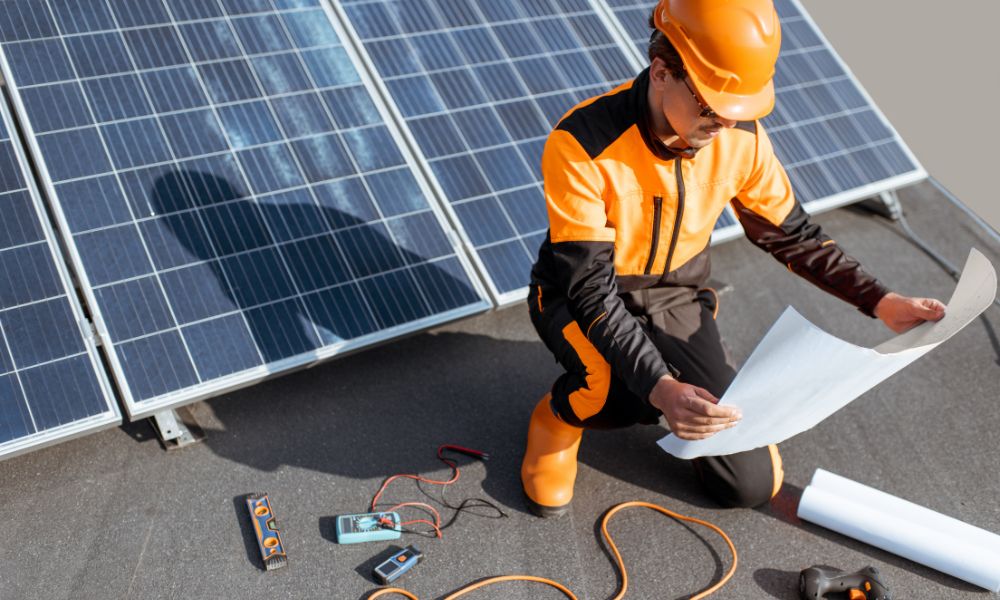As the demand for sustainable energy solutions continues to rise, solar power stands out as a beacon of clean, renewable energy. Whether for residential or commercial properties, the design of a solar system is a meticulous process that involves considering various factors to ensure optimal performance and efficiency.
In this article, we will explore the key factors that come into play when designing solar systems for both residential and commercial properties, shedding light on the intricate details that contribute to the success of these eco-friendly energy solutions.
Solar System Design: A Comprehensive Approach
Site-Specific Factors
Sunlight Exposure and Orientation
The cornerstone of any successful solar system design is an in-depth analysis of sunlight exposure. The orientation of the property, as well as the angle and pitch of the roof, play crucial roles in maximizing the capture of sunlight.
Advanced solar design takes into account the path of the sun throughout the year to optimize energy production.
Shading Analysis
Excessive shading can significantly impact the efficiency of a solar system. During the design phase, professionals conduct shading analyses to identify potential obstructions such as trees, neighboring structures, or geographical features.
Mitigation strategies, like adjusting panel placement or tree trimming, are then implemented to minimize shading effects.
Energy Consumption Patterns
Energy Consumption Analysis
Understanding the energy consumption patterns of a property is fundamental to designing a solar system that meets its specific needs. Historical energy usage data is analyzed to determine the size and capacity of the solar installation required to offset a significant portion of the property’s electricity demand.
Load Analysis for Commercial Properties
For commercial properties, load analysis goes beyond residential considerations. It involves a detailed examination of the energy needs during peak hours, understanding fluctuations, and ensuring the solar system is designed to handle the diverse and often higher energy demands of commercial operations.
System Components and Configuration
Solar Panel Selection
The choice of solar panels is a critical aspect of the design process. Factors such as efficiency, durability, and warranty play a role in selecting panels that align with the specific requirements of the property.
Advances in technology also introduce options like bifacial panels that can capture sunlight from both sides.
Inverter Technology
Inverters convert the direct current (DC) generated by solar panels into alternating current (AC) for use in homes or businesses. The selection of inverter technology is essential to optimize energy production.
String inverters, microinverters, and power optimizers are among the options considered based on system requirements.
Battery Storage Integration
For both residential and commercial properties, the inclusion of battery storage solutions is increasingly becoming a consideration. Energy storage systems, such as lithium-ion batteries, enable properties to store excess energy generated during the day for use during periods of low sunlight or grid outages.
Regulatory Compliance and Aesthetics
Permitting and Local Regulations
Navigating the regulatory landscape is a crucial aspect of solar system design. Professionals ensure that the design complies with local building codes, zoning regulations, and permitting requirements. This includes securing approvals from authorities to proceed with the installation.
Aesthetic Considerations
Incorporating solar seamlessly into the aesthetic of a property is an art. Designers consider factors such as panel placement, color options, and integration with existing structures to ensure that the solar system enhances the property’s visual appeal rather than detracting from it.
Professional Consultation: Navigating the Design Process
Expert Assessment
Site Assessment and Consultation
Before diving into the design, a thorough site assessment is conducted. This involves a physical inspection of the property to evaluate factors like roof condition, available space, and shading issues.
Consultations with property owners allow professionals to understand specific needs and goals, shaping the design accordingly.
Design Optimization
Computer-Aided Design (CAD)
The use of advanced technologies like Computer-Aided Design (CAD) plays a pivotal role in the solar system design process. CAD allows professionals to create detailed 3D models, simulating how the solar panels will interact with sunlight throughout the day and across seasons.
Financial Analysis
Cost-Benefit Analysis
Solar system designers perform a comprehensive cost-benefit analysis to assess the economic viability of the proposed design. This includes evaluating the return on investment (ROI), payback period, and potential financial incentives or rebates available to the property owner.
Solar Installation | New York State Solar Farm
As you embark on the journey to embrace solar energy for your residential or commercial property, New York State Solar Farm stands ready to be your trusted partner in the design and installation process. Our team of experts combines technical proficiency with a commitment to delivering tailored solutions that meet your unique requirements.
Contact New York State Solar Farm today or check out our website at buysolarlocal.com for a personalized solar system design consultation. Let our professionals guide you through the intricate process, ensuring that your solar installation not only meets but exceeds expectations. Together, let’s pave the way for a sustainable and energy-efficient future.

